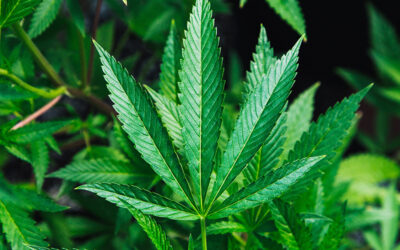Updated September 2019
Four years after approving comprehensive medical marijuana legislation in 2012, voters in Massachusetts fully legalized recreational marijuana for adults. Learn more about Massachusetts marijuana laws below.
Recreational Marijuana in Massachusetts
Is marijuana legal in Massachusetts? Yes– Ballot initiative Question 4 was approved by 54 percent of voters in November 2016, legalizing adult use marijuana and subjecting it to taxes and rules similar to those that apply to alcohol. Under the law, which took effect December 15, 2016, adults 21 and older are allowed to possess up to 1 ounce of marijuana, keep up to 10 ounces of marijuana at home, and grow up to six plants for personal use. Cannabis edibles and concentrates are also legal under the law.
Retail sales of recreational marijuana in Massachusetts launched November 2018, and after only six months generated nearly $140 million in revenue.
Medical Marijuana in Massachusetts
With 63% of voters approving Ballot Question 3 in November 2012, medical marijuana became legal in Massachusetts. Under the law, patients over 18 years of age must be approved by a physician and certified by the state before being legally allowed to possess up to a “60 day supply” of marijuana. Patients under the age of 18 can qualify for medical marijuana provided two Massachusetts licensed certifying physicians diagnose the patient as having either a debilitating life-limiting illness or a condition where both physicians believe the benefits of marijuana outweigh the risks.
Patients can apply for a hardship cultivation registration due to financial hardship, physical incapacity to travel to a dispensary, or living beyond a reasonable distance of a dispensary. Being approved for a hardship cultivation registration allows patients or his or her caregiver to cultivate a limited number of plants sufficient to maintain a 60-day supply of marijuana.
Conditions approved for medical marijuana in Massachusetts include:
- Amyotrophic Lateral Sclerosis (ALS)
- Cancer
- Crohn’s disease
- Glaucoma
- HIV/AIDS
- Hepatitis C
- Multiple Sclerosis
- Parkinson’s disease
Consumption of CBD from Hemp Oil in Massachusetts
Hemp-derived CBD products are legal under Federal Law in the United States; however, individual state laws are dynamic and fluid. Individual states may enact their own laws governing hemp-derived CBD.
Cultivation of Cannabis in Massachusetts
Under Massachusetts’ medical marijuana program, patients that have been approved for a hardship cultivation registration can grow a limited amount of cannabis for medical use.
Under Question 4, adults that are aged 21 and older can grow up to six plants at home for personal use.
Growing hemp for industrial purposes was made legal by Massachusetts voters in 2016. The state legislature then crafted and implemented House Bill 3838, which allows for the commercial growing and processing of hemp, on July 28, 2017. The Massachusetts Department of Agricultural Resources (MDAR) Hemp Program oversees and regulates the hemp program, which is still in the process of being developed. The MDAR is currently accepting applications for commercial growers and processors.
Legal Status of Other U.S. States
Stay up to date on the latest state legislation, referendums, and public opinion polls. Our Marijuana Legalization Map allows you to browse the current status of medical and recreational marijuana laws in other U.S. states and territories.
Sources
- http://medicalmarijuana.procon.org/view.resource.php?resourceID=000881#
- http://www.mass.gov/eohhs/docs/dph/quality/medical-marijuana/law-enforcement-guidance.pdf
- http://norml.org/laws/item/massachusetts-penalties-2
- https://www.mass.gov/orgs/executive-office-of-health-and-human-services
- http://boston.cbslocal.com/2016/11/09/marijuana-legalization-massachusetts-what-happens-next/
DISCLAIMER: The information contained in this website is for general information purposes only; it does not constitute legal advice. Although we endeavor to keep the information up to date and correct, we make no representations or warranties of any kind, express or implied, about the completeness, accuracy, reliability, suitability or availability with respect to the website or the information, products, services, or related graphics contained on the website for any purpose. Therefore, any reliance you place on such information is strictly at your own risk.






